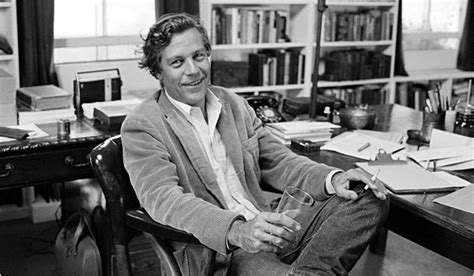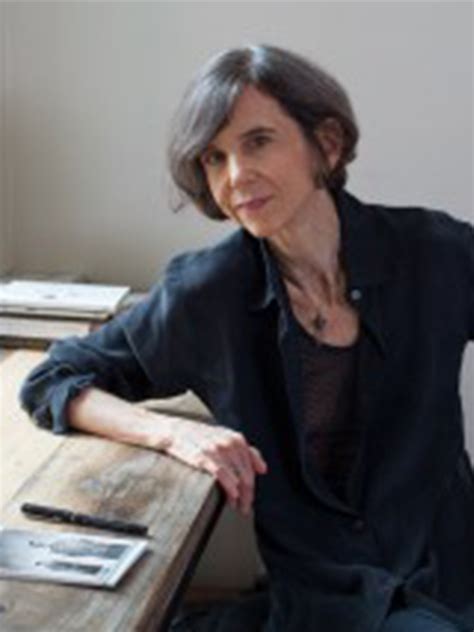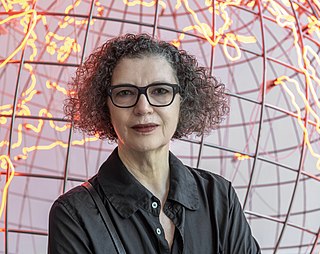Top 93 Otherness Quotes & Sayings - Page 2
Explore popular Otherness quotes.
Last updated on April 16, 2025.
In Grade 2, when we had to do a presentation in front of the class, I'd always do things about Ireland or Italy. I could draw maps; I could name all the capitals: I was completely drawn to other lands. I discovered with time that it's a thirst for other people, for otherness, for something fascinating and mysterious.
I think as women, you know, if you are considered a pioneer in these things, you can get really distracted by these other things - you know, people's demands of you reflecting on your otherness. And for this white critic to say, "I don't understand why she doesn't do that" - and you're like, "It's because I'm running a show on a major network and I want the show to continue" - and to sort of guilt me.
His contagious conviction that our love was unique and desperate infected me with an anxious sickness; soon we would learn to treat one another with the circumspect tenderness of comrades who are amputees, for we were surrounded by the most moving images of evanesecence, fireworks, morning glories, the old, children. But the most moving of these images were the intagible relfections of ourselves we saw in one another's eyes, reflections of nothing but appearances, in a city dedicated to seeming, and, try as we might to possess the essence of each other's otherness, we would inevitably fail.
Many writers write across difference of one kind or another. Sometimes the difference is large and recognizable: gender, or race, or religion, or sexuality. And sometimes the differences are smaller. ... Where authors get into trouble is in trying to make those different characters stand in for whole groups of people, or for creating characters only to fetishize or explore their supposed otherness. Your character can be wildly different from you, as long as he's written with respect and, moreover, specificity.
Writing itself, if not misunderstood and abused, becomes a way of empowering the writing self. It converts anger and disappointment into deliberate and durable aggression, the writer's main source of energy. It converts sorrow and self-pity into empathy, the writer's main means of relating to otherness. Similarly, his wounded innocence turns into irony, his silliness into wit, his guilt into judgment, his oddness into originality, his perverseness into his stinger.
By seeing the otherness in that which is most unfamiliar, we can learn to see it too in that which at first seemed merely ordinary. If wilderness can do this - if it can help us perceive and respect a nature we had forgotten to recognize as natural - then it will become part of the solution to our environmental dilemmas rather than part of the problem.
The ’60s was the last time when large groups of people in the West searched for alternative modes of being. In a society like India’s, which is still not fully modern or totally organized, and has a great deal of tolerance for otherness in general, they find the cultural license to try other things, to be whatever they want to be.
I think that you have to experience darkness to feel empathy. For all of my failings - and I have many - I do have a complete ability to emphasize with people. And that all goes down to being "other." When you're young you think otherness is a state only you possess. When you get older you realize, "Actually, there's so many of us." In that we find community.
Every day things happen in the world that cannot be explained by any law of things we know. Every day they're mentioned and forgotten, and the same mystery that brought them takes them away, transforming their secret into oblivion. Such is the law by which things that can't be explained must be forgotten. The visible world goes on as usual in the broad daylight. Otherness watches us from the shadows.
Fear is so fundamental to the human condition that all the great spiritual traditions originate in an effort to overcome its effects on our lives. With different words, they all proclaim the same core message: "Be not afraid." Though the traditions vary widely in the ways they propose to take us beyond fear, all hold out the same hope: we can escape fear's paralysis and enter a state of grace where encounters with otherness will not threaten us but will enrich our work and our lives.
For centuries poets, some poets, have tried to give a voice to the animals, and readers, some readers, have felt empathy and sorrow. If animals did have voices, and they could speak with the tongues of angels-at the very least with the tongues of angels-they would be unable to save themselves from us. What good would language do? Their mysterious otherness has not saved them, nor have their beautiful songs and coats and skins and shells and eyes.
Ever since the Evil Empire turned out to be a collection of third-world countries, Americans aligned on the far right have tried to cast gay men and lesbians as the new enemy, calculating deviants seducing the nation's young, anti-Avon ladies selling sodomy door-to-door. This simply won't wash. Just as seeing the Russians up close and personal on television humanized them, so seeing the lesbian grandmother of two little girls wearing her gold medal with pride makes the notion of otherness, much less deviance, silly and ignorant.
The beloved is already in our being, as thirst and "otherness." Being is eroticism. Inspiration is that strange
voice that takes man out of himself to be every thing that he is, everything that he desires; another body,
another being. Beyond, outside of me, in the green and gold thicket, among the tremulous branches,
sings the unknown. It calls to me.
Reading has always brought me pure joy. I read to encounter new worlds and new ways of looking at the world. I read to enlarge my horizons, to gain wisdom, to experience beauty, to understand myself better, and for the pure wonderment of it all. I read and marvel over how writers use language in ways I never thought of. I read for company, and for escape. Because I am incurably interested in the lives of other people, both friends and strangers, I read to meet myriad folks and enter their lives- for me, a way of vanquishing the “otherness” we all experience.
Disability strips away complacency. Affliction is brutal, but it can also push vital questions to the fore. The afflicted body becomes a site of otherness, confusion, isolation, watchfulness, longing. One becomes keenly aware of the impersonality of brute matter, but at the same time there is often a raw, mistrustful desire for gentleness, connection.
We are separated from one another by an unbridgeable gulf of otherness and strangeness which resists all our attempts to overcome it by means of natural association or emotional or spiritual union. There is no way from one person to another. However loving and sympathetic we try to be, however sound our psychology however frank and open our behaviour we cannot penetrate the incognito of the other man, for there are no direct relationships, not even between soul and soul. Christ stands between us, and we can only get into touch with our neighbors through Him.
I have read all of Daniel Aaron's books, and admired them, but in The Americanist I believe he has composed an intellectual and social memoir for which he will be remembered. His self-portrait is marked by personal tact and admirable restraint: he is and is not its subject. The Americanist is a vision of otherness: literary and academic friends and acquaintances, here and abroad. Eloquently phrased and free of nostalgia, it catches a lost world that yet engendered much of our own.
And just as music is the space between notes, just as the stars are beautiful because of the space between them, just as the sun strikes raindrops at a certain angle and throws a prism of color across the sky—so the space where I exist, and want to keep existing, and to be quite frank I hope I die in, is exactly this middle distance: where despair struck pure otherness and created something sublime.
The themes that I explore, Taika Waititi also explores: how teaching children a sense of 'us and them' breeds a sense of superiority and dehumanises what one perceives as 'otherness'; and why this theme is relevant to today's rise in the far-Right, how children and youth are indoctrinated into extremism and terrorism.
We as the band are passionate and energetic musicians. We have minimised the amount of self-criticism. Fear of death, total impatience and an unconcerned attitude to weary notions of good and bad is what's making us exceed speed limits. We're hijacking the holy inspiration from otherness, and we don't spoil it with personal aesthetic preferences. We are panthers and gazelles, not slugs and tortoises. Though it must be said that after turning forty I've started to resemble a sloth more and more.
I started traveling out of curiosity, but I have come to believe in travel's political importance, that encouraging a nation's citizenry to travel may be as important as encouraging school attendance, environmental conservation, or national thrift. You cannot understand the otherness of places you have not encountered.
Many of our attempts to understand Christian faith have only cheapened it. I can no more understand the totality of God than the pancake I made for breakfast understands the complexity of me. The little we do understand, that grain of sand our minds are capable of grasping, those ideas such as God is good, God feels, God loves, God knows all, are enough to keep our hearts dwelling on His majesty and otherness forever.
I'm often asked the same question: What in your work comes from your own culture? As if I have a recipe and I can actually isolate the Arab ingredient, the woman ingredient, the Palestinian ingredient. People often expect tidy definitions of otherness, as if identity is something fixed and easily definable.
We are born haunted, he said, his voice weak, but still clear. Haunted by our fathers and mothers and daughters, and by people we don't remember. We are haunted by otherness, by the path not taken, by the life unlived. We are haunted by the changing winds and the ebbing tides of history. And even as our own flame burns brightest, we are haunted by the embers of the first dying fire. But mostly, said Lord Jim, we are haunted by ourselves.
Pack the one bag. Unpack it, pack it, unpack it, pack it: passeport, ticket, book, taxi, airport, check-in, beer, announcement, stairs, airplane, fasten seat-belt, air born, flight, rocking, sun, stars, space, hips of strolling stewardesses, read, sleep, clouds, falling engine speed, descent, circling, touch down, earth, unfasten seat-belt, stairs, airport, immunization book, visa, customs, questions, taxi, streets, houses, people, hotel, key, room, stuffiness, thirst, otherness, foreignness, loneliness, fatigue, life.
We are all born with a belief in God. It may not have a name or face. We may not even see it as God. But it is there. It is the sense that comes over us as we stare into the starlit sky, or watch the last fiery rays of an evening sunset. It is the morning shiver as we wake on a beautiful day and smell a richness in the air that we know and love from somewhere we can't quite recall. It is the mystery behind the beginning of time and beyond the limits of space. It is a sense of otherness that brings alive something deep in our hearts.
I have discovered, passionate grief does not link us with the dead but cuts us off from them. This becomes clearer and clearer. It is just at those moments when I feel least sorrow - getting into my morning bath is usually one of them - that H. rushes upon my mind in her full reality, her otherness. Not, as in my worst moments, all foreshortened and patheticized and solemnized by my miseries, but as she is in her own right. This is good and tonic.
When you're playing a spirit from another dimension, you really can do anything and get as abstract as you want and still have a context that will work within the movie. I wanted Ghost Rider to move in a way where it would be like a bad dream. I thought about cobra snakes, and the way that they will show you their backs and sway in a rhythmic motion and almost lull you to sleep before suddenly attacking. Well, I put that into the movie. And I decided to move my head in the jerky way a praying mantis does. So, I did all these things to give the movie a feeling of otherness.
White hate crimes, white hate speech. I still try to claim I wasn't brought up to hate. But hate isn't the half of it. I grew up in the vast encircling presumption of whiteness - that primary quality of being which knows itself, its passions, only against an otherness that has to be dehumanized. I grew up in white silence that was utterly obsessional. Race was the theme whatever the topic.
They could fall in love with fresh, new people, or they could have the courage and humility to tear off some essential layer of themselves and reveal to each other a whole new level of otherness, a level far beyond what sort of music they liked. It seemed to her everyone had too much self-protective pride to truly strip down to their souls in front of their long-term partners. It was easier to pretend there was nothing more to know, to fall into an easygoing companionship. It was almost embarrassing to
There seems to be something poetically that doesn't work or is limiting when you call God 'God' in a poem. When I tried to be honest with myself in my relationship with God, Christ is, on the one hand, completely dark, he's transcendent and unknown. On the other hand, he is completely imminent and completely knowable as Jesus. Our tradition speaks of him in both ways as transcendent but also as a lover who comes to us, and the two word 'Dark One' seem to me to contain both things, the transcendence and otherness of Christ, but also like a kind of dark lover who comes to us.































